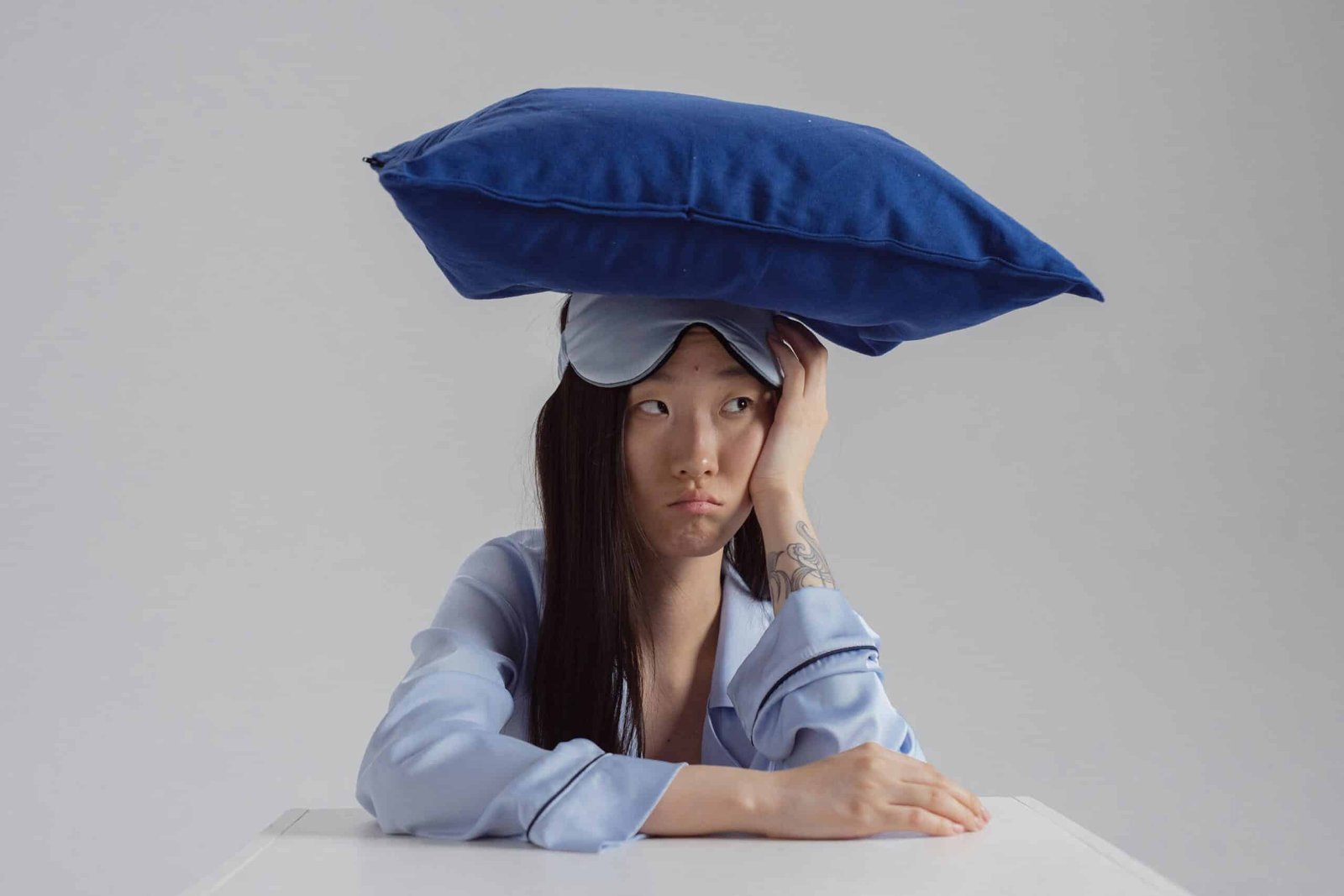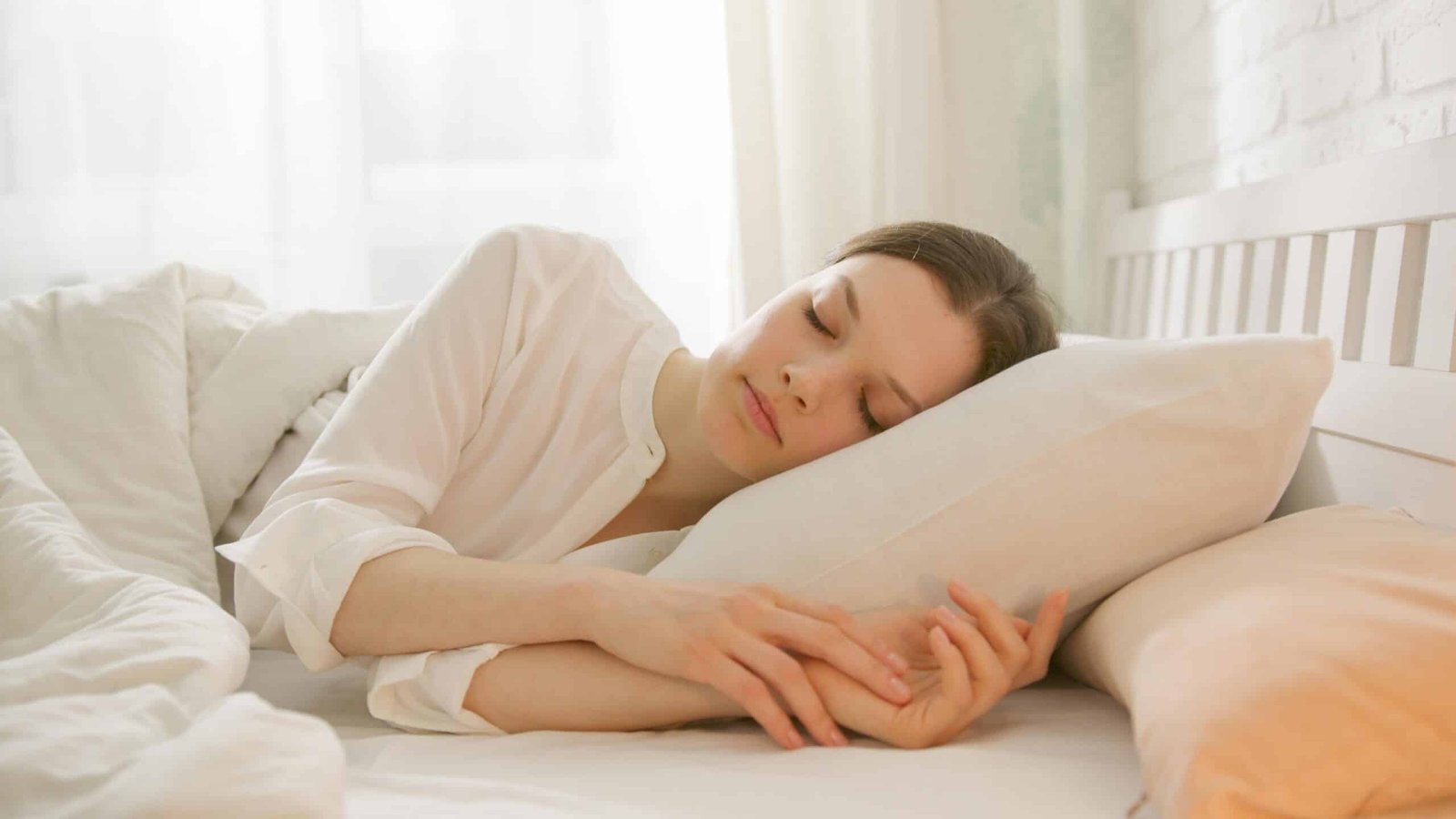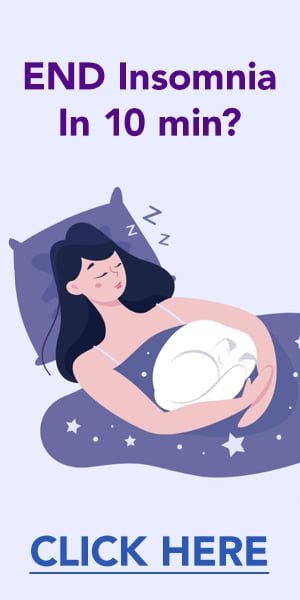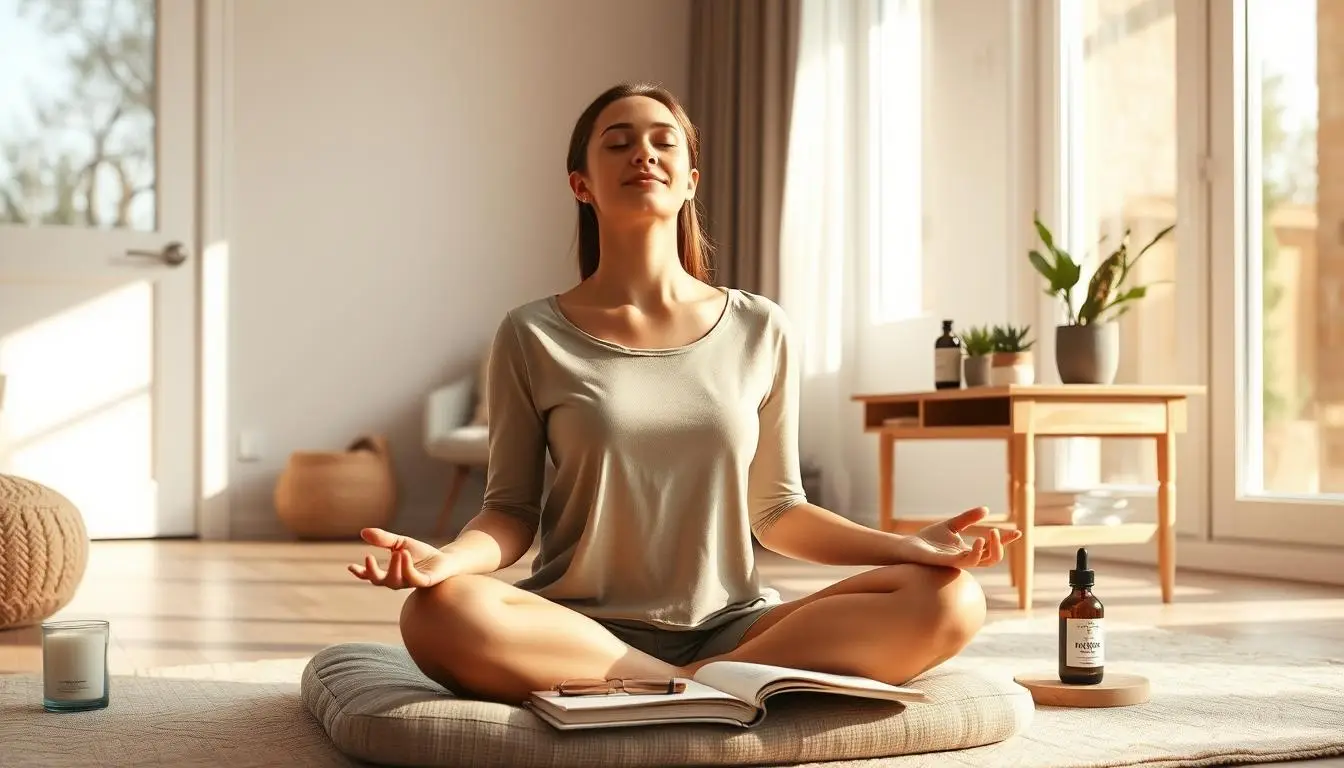One of the handiest things you can do for your health is to get adequate sleep. How about you survive one night of good sleep and you feel like you just won a million bucks? Well, I do. I am always wishing for a good sleep in spite of whether I go to bed or not. Or if you are like me, begging to know why this is so difficult, rest assured there. This article will show you what sleep therapy can do for us.
We fall asleep eventually, but those hours lay awake are quiet hours where you lie staring at the ceiling or absent-mindedly watching TV commercials, get an hour here and 45 minutes there to be woken by alarm clocks and smartphones with buzzing reminders no other relaxing sleep now. If these issues persist, they can create a multitude of physical, emotional and cognitive problems. That is where sleep therapy helps him. So, what is sleep therapy, how can it help and who should take it? In this blog, we take a closer look at these meanings for a deeper insight of this important sleep improvement method.
Disclosure: This post may contain affiliate links and I may receive a small commission if you purchase through them. There is no additional charge to you.
What Is Sleep Therapy?
Sleep therapy includes a wide range of approaches and treatments that are designed to help people with sleep disorders attain better quality sleep. Rather than pop a pill to knock yourself out, sleep therapy focuses on the root causes of your issues, be they physical, psychological or environmental. Getting better sleep and improving the obstacles to falling asleep is what all of the sleep therapy strategies are about.
Sleep therapy comes in many forms and is designed to work on different sleep issues. Cognitive Behavioral Therapy for Insomnia (CBT-I) is a widely-known type of sleep therapy that works on most people. It helps to modify these behaviors and thoughts that are maintaining the difficulty in sleeping, to promote better sleep routines and lessen the levels of anxiety associated with sleep. Relaxation techniques, light therapy and in the most extreme cases medicine are some other ways of sleep therapy. The bottom line is that sleep therapy approaches are individualized and geared to address unique issues for each patient.
The Benefits of Sleep Therapy
Benefits, wrought from the use of sleep therapy, that stretch out far beyond A Sound Night’s Sleep. Though the focus is on helping you to sleep better, there are so many benefits of a good night’s rest that reach far beyond just a better night. Sleep has the critical first and foremost effect of being great for your health. During sleep, the body repairs from everyday wear and tear (this includes immune function, muscle growth, hormone regulation…just to name a few.) Getting a good sleep is also making your body more capable of healing and maintaining good health.
Besides how it helps with physical health, sleep therapy does wonders for another aspect of your life: mental health. Sleep deprivation is related to several mental health problems like anxiety, depression and erratic moods. Lack of sleep taxes the brain when it comes to regulating emotions, and that makes managing stress more difficult, while also making your mind vulnerable to negative moods. Sleeping therapy Read: Even sleeping on the other hand helps break this cycle, as it can lead to more and better sleep, which in turn contributes to maintaining a healthy state of mind. This can help to improve mood, reduce anxiety and promote overall well-being.
Sleep therapy also improves cognitive performance. Your ability to focus, think things through, and remember small details are not at their best when you’re running low on sleep. In addition, your brain requires the occasional break to be at its best and sleep therapy can help you reach a deep, restorative sleep which is required for optimal cognitive function. If you are a student who needs to remember things for your lessons, or someone whose job demands memory and efficiency and if you would like to live more fully, better sleep can considerably help.
When Do You Need To Go For Sleep Therapy?

Well then, how do you know whether or not sleep therapy is worth considering? The answer is not always simple but there are a few general guidelines as to when you may want to look into getting support. A clear warning sign is chronic sleep disorder. If you have had trouble falling or staying asleep for longer than a few weeks and it’s starting to interfere with your daily life, sleep therapy may help.
But insomnia is more than just a minor annoyance and can cause a slew of problems that impact your health if left untreated. Therapy and cognitive behavioral therapy are able to help you find the cause of your insomnia, but sleep therapy can assist with more practical measures that will help you overcome it.
The other indication for considering sleep therapy is daytime sleepiness of an inappropriate level. This may indicate a sleep disorder such as sleep apnea, which occurs when your breathing is interrupted during sleep and therefore you are not getting the deep rest that you need.
Using sleep therapy can be beneficial in identifying issues that may wreak havoc on your energy levels and mood during waking hours. So, when you are starting to fall asleep during meetings or rolling down the windows while driving just to catch a breeze on your face because you cannot stay awake anymore and are taking multiple naps to get through your day- It is time.
Also, those of you who are having frequent nightmares or night terrors may find sleep therapy beneficial. While this naughtiness can also be worrying, it is a sign of deeper rooted stress or trauma that should be addressed as well. A sleep therapist will help you dabble into these points and find ways to tackle them, leading to lesser occurrences of such night disturbances.
If you have tried to improve your sleep through other methods like reducing caffeine intake, setting bedtime routines or using over the counter aids and none of it seems to work than it’s worth a shot next with sleep therapy. They often are, especially when there is a mix of different things going on and you need to find the best way forward.
Types of Sleep Therapy
Sleep therapy is not a cure-all — different sleep problems require different solutions. Here, we dig into the most widely-used types of sleep therapy and how they may be beneficial.
1. Cognitive Behavioral Therapy for Insomnia (CBT-I):
As already stated, CBT-I is the best solution available to address sleeplessness. Primary focus is on changing the thoughts and behaviors that affect sleep. So, if you are laying in bed with thoughts of not being able to get to sleep, CBT-I would provide advice on how to improve the way one thinks about their ability to sleep and creating a better surrounding for sleep. This usually includes Cognitive therapy (changing negative thoughts surrounding sleep) then a variety of behavioral strategies such as Sleep restriction and more stimulus control to encourage healthy sleep habits. CBT-I Benefits: CBT-I is currently recognized as the most efficacious non-pharmacological treatment for insomnia.
This does not just make you fall asleep more quickly, yet also enhances the basic top quality and volume of your rest. Compared to sleeping pills, CBT-I treats the underlying causes of insomnia and tends to have long-lasting effects on sleep (without the addiction). It also gives people the ability to deal with their sleep problems on their own, which may be a more powerful strategy for setting them up for long-term success in getting better sleep.
2. Relaxation Techniques:
Stress and anxiety can be the chalk of sleep disruption, but relaxation techniques are a good eraser. The following may involve activities such as deep breathing, progressive muscle relaxation, guided imagery or meditation. The idea is to quiet your mind and body, thus alleviating the physical and psychological stress that often prevents sleep. A lot of people who use these methods, by including it in their bedtime formula they manage to fall asleep quicker and sleep better.
Relaxation techniques: Relaxation techniques are easy to use methods that calm high-alert systems and allow sleep to happen naturally. Lowering stress and anxiety helps reduce the time to fall asleep quicker, better quality of sleep, less frequent wake up at night. They also create a calming mood and sense of well-being that can spill over into the rest of your life, making them a useful addition to stress-soothing tactics in general.
3. Light Therapy:
Sunlight regulates your circadian rhythm, also known as the body’s internal clock. If they are a result of things like seasonal affective disorder (SAD) or jet lag, you might benefit from light therapy. This means exposure to bright light at particular times of the day that over time can help reset your circadian rhythm and improve sleep quality. Light Therapy This is beneficial for those who have the right type of sleep problem (usually circadian rhythm disruptions from shift-work, jet-lag, or shifts in seasonal change).
The theory is that by exposing the body to bright light at certain times, light therapy can realign the body’s internal clock with the external time, leading to improved sleep and wake cycles. And since it is a non-invasive, drug-free treatment option, biofeedback therapy can be helpful to many people in a safe manner.
4. Medication:
In certain cases, drugs may be at play in sleep treatment, especially if you have a sleep syndrome like insomnia or rest apnea. Most of the time, a similar drug treatment is considered as short-run and should be paired with rehabilitation. Together, your sleep therapist or doctor will help you determine the best course of action to take for a better night’s sleep.
Advantages of Medications: Sleeping pills can be used in the short term to help cope up with acute sleep problems and provide relief in their symptoms quickly. Medications are also a useful treatment for people with more severe sleep problems or those whose insomnia has not responded to other treatments. That said, they are typically only prescribed for limited periods as they can lead to problems with dependency and other side effects over the long run.
5. Sleep Hygiene Education:
In many cases, simple changes to your environment or habits can really help boost your sleep quality. Sleep hygiene education talks about the best ways to do this, which is how to have good sleep habits and make sure your bedroom environment is conducive of that. This may involve recommendations about reducing screen time before bed, making a dark, quiet bedroom and keeping to a normal schedule.
Sleep hygiene Can be beneficial /gets healthier sleep Sleep therapy includes many tools and techniques for improving sleep. Common advise includes improving sleep habits and creating an atmosphere conducive to sleep, which is the first-line treatment to also address minor issues that do not require higher levels of intervention. It is also a preventive measure that serves to maintain sleep patterns long-term.
6. Meditate at Homefulness Based-Stress Reduction (Centered)
Sleep often teaches participants to incorporate mindfulness methods to check stress and develop sleep skills as time goes on. For instance, MBSR incorporates mindfulness meditation (focusing intentionally on the present moment without any judgment). This active effort can help suppress that running dialogue many people experience which constantly goes on inside the mind at night and keep them laying awake, leading to a more calm and relaxed preparation for sleep.
How MBSR can help: Mindfulness practices, including MBSR, can be especially useful for those who experience stress, anxiety, or a chaser-mind syndrome — a famous mind that interferes with sleep. Being present, non-judgmentally, by practicing mindfulness can help you stop struggling with concern and rest down on a pillow to sleep. This is believed to help sleep become more restorative in the long run, which also leads to a host of other mental health benefits.
7. Sleep Restriction Therapy:
That probably seems backward, but it can be quite helpful for individuals with long-standing insomnia. Sleep restriction therapy restricts the time you spend in bed to the exact amount of sleep that you are getting. For instance, if you are only able to sleep for five hours a night, perhaps seven days a week you should have only spent 5 hrs in bed. Over time, this can assist in sleep consolidation and increase the efficiency of your sleep.
The Role of Sleep Restriction Therapy — By turning to sleep restriction therapy you can end this cycle and win the battle against insomnia. This can help re-entrain the body to sleep better and improve your sleep efficiency by decreasing how long you’re awake in bed. Although it can be hard in the beginning; most people realize the benefit of a much more relaxing and less disruptive sleep.
Conclusion
But the field of sleep therapy is broad and bursting with tools to use hopeful thrash and say goodnight! No matter what you’re up against, be it a chronic lack of sleep or simple stress-induced sleep disturbances, there’s probably some kind of wonder cure for that out there somewhere. Being in the right state of sleep can provide extensive advantages that go far beyond a good night’s sleep—helping to promote your physical, mental health and make you feel better about life too.
If you have difficulty sleeping, perhaps it is time to explore the power of sleep therapy? Using these tips will release you from the grip of bad sleep and have you feeling the restorative effects of slumber again in no time. Sleep is a necessity, not a luxury. Therapy can be a game changer for those who prioritize their sleep health.











